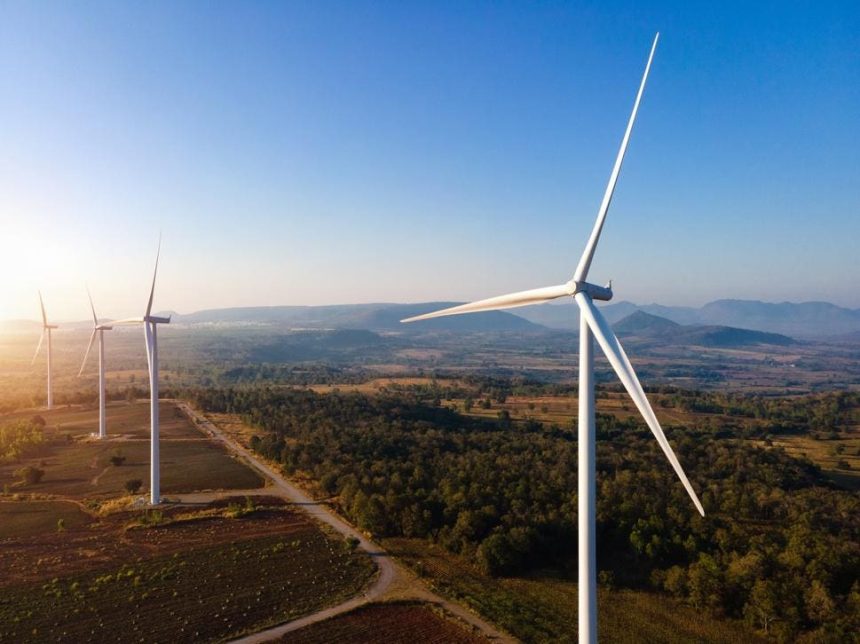Stefano is Founder of MergersCorp M&A International, Investment Banker and M&A Advisor with 15+ years international experience.
In recent years, the global energy landscape has been undergoing significant changes. These changes have been driven by growing concerns in regards to climate change, depleting fossil fuel reserves and the need to decrease greenhouse gas emissions. This has resulted in more conversations around renewable energy sources such as wind, solar, hydro, biomass and geothermal. These renewable sources have emerged as potentially attractive alternatives to conventional fossil fuels. Below, I’ll examine the key considerations for investors when they are contemplating investments in projects that have to do with renewable energy. By analyzing the environmental, social and economic aspects of these types of investments, they can understand the opportunities and challenges linked to the transition toward systems of sustainable energy.
Due to the increasing awareness of the environmental impact of conventional energy sources, the pursuit of renewable energy investments has gained momentum internationally. The depletion of non-renewable resources and the rising threat of climate change necessitate a shift toward more environmentally friendly and sustainable energy alternatives. However, investing in renewable energy projects involves a number of different considerations that vary from conventional energy investments. I will explore these important elements to assist investors with making more informed decisions in the renewable energy sector, which has been evolving quite rapidly.
Economic Considerations
Initial Investment Costs
Among the main challenges in renewable energy investments is the potentially higher upfront cost in comparison to projects that are fossil-fuel-based. Solar panels, energy storage systems and wind turbines require a significant amount of capital investments. Nevertheless, if technology costs decrease and government incentives continue to rise, this could help drive renewable projects and may make them more economically viable.
Levelized Cost Of Energy (LCOE)
It is vital for investors to deeply explore the LCOE of renewable energy sources and use the findings to measure their level of competitiveness with conventional energy sources. The continuous decline in LCOE for renewables, particularly wind and solar, is likely to make them more and more attractive in comparison to other alternatives to fossil fuel.
Determining Return On Investment (ROI)
It is vital for investors to figure out the expected ROI of their investments. Renewable energy projects will most likely involve a more extended period of repayment; however, they can provide a stable flow of cash over the long term. This is because of reduced costs of fuel and minimized environmental externalities—uncompensated environmental effects of production and consumption that affect consumer utility and enterprise cost outside the market mechanism.
Policy And Regulatory Environment
The predictability and stability of energy policies can have a significant influence on the viability of renewable energy investments. Favorable regulations, tax incentives, feed-in tariffs and renewable portfolio standards can provide a way of boosting investor confidence and driving the adoption of renewable energy.
Environmental Considerations
Carbon Footprint
Among the key drivers of renewable energy investments is the decrease in carbon emissions. Investors must analyze the carbon footprint of various renewable sources and their possibility for mitigating climate change.
Land Use And Biodiversity
Certain renewable projects, such as large-scale wind and solar farms, could impact local ecosystems and biodiversity. Vigilant site selection and environmental impact evaluations are essential for investors to minimize any negative outcomes.
Life Cycle Analysis
A precise evaluation of the environmental effect of renewable energy technologies requires a life cycle analysis. This analysis should consider the technologies’ full life span from the extraction of raw material to disposal. Conducting this analysis can assist you in identifying possible hotspots and optimizing resource use.
Social Considerations
Job Creation and Economic Development
Renewable energy projects should generate jobs and promote local economic growth. They should also clearly foster a more sustainable and resilient economy.
Public Perception And Community Engagement
Support and acceptance from the public are critical for renewable energy initiatives to succeed. Investors should engage with local communities to talk about concerns and have effective discussions about the benefits of renewable projects.
Energy Access and Equity
Renewable energy investments can play a critical role in providing energy access to communities that are underserved. Investors should consider social equity and integrate it into their investment policies.
Conclusion
Investing in renewable energy offers a number of opportunities for environmental stewardship and sustainable growth of the economy. However, there are also unique challenges that arise that require a lot of careful consideration. By taking these important elements into consideration, investors will be able to contribute to the global transition toward a future that provides more sustainable and resilient energy. Collaboration between governments, communities and businesses is necessary in order for us to create an environment that nurtures renewable energy investments and fast-tracks the transition to an energy landscape that is cleaner and greener.
The information provided here is not investment, tax, or financial advice. You should consult with a licensed professional for advice concerning your specific situation.
Forbes Business Council is the foremost growth and networking organization for business owners and leaders. Do I qualify?
Read the full article here









